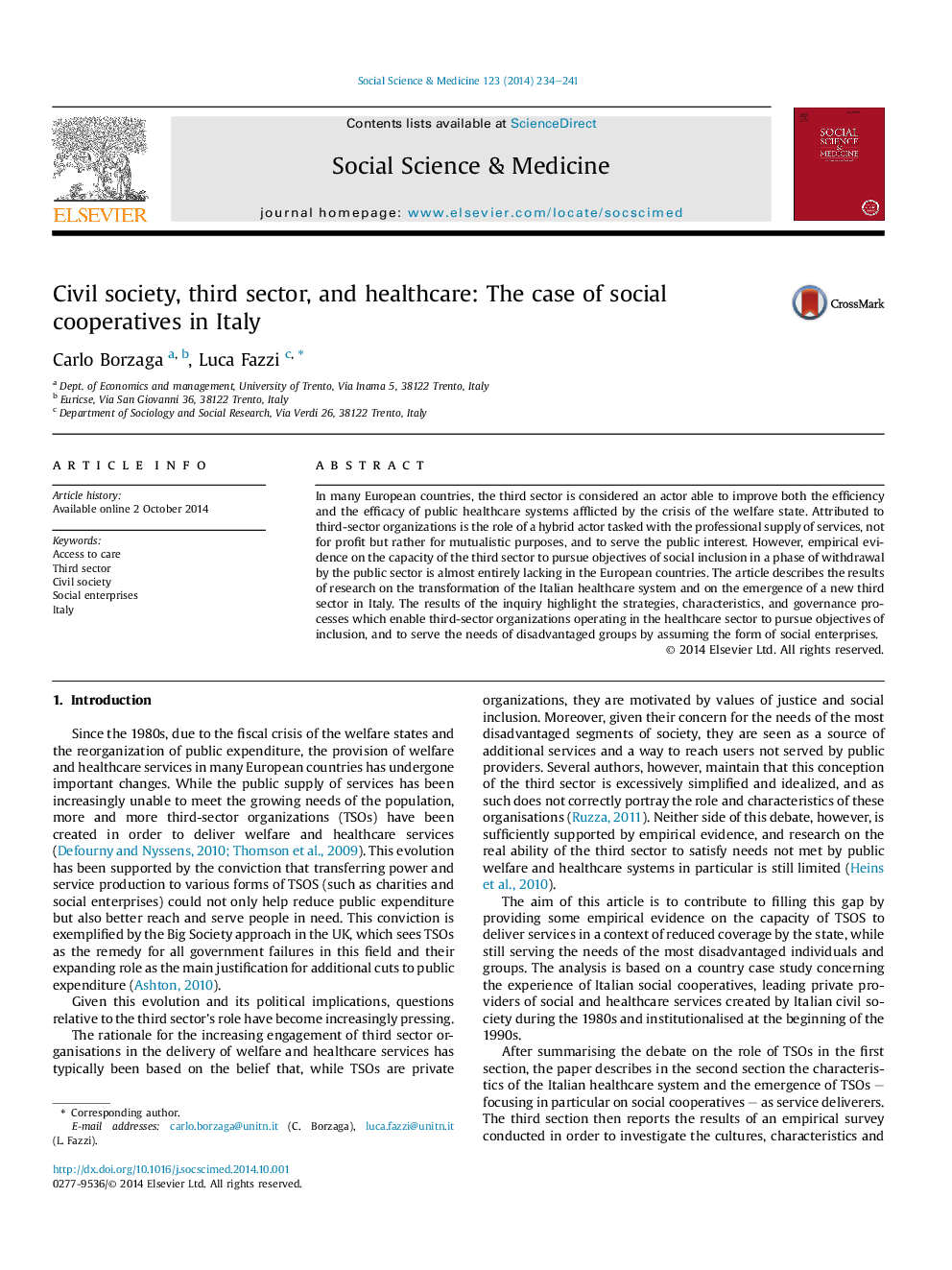| Article ID | Journal | Published Year | Pages | File Type |
|---|---|---|---|---|
| 7333840 | Social Science & Medicine | 2014 | 8 Pages |
Abstract
In many European countries, the third sector is considered an actor able to improve both the efficiency and the efficacy of public healthcare systems afflicted by the crisis of the welfare state. Attributed to third-sector organizations is the role of a hybrid actor tasked with the professional supply of services, not for profit but rather for mutualistic purposes, and to serve the public interest. However, empirical evidence on the capacity of the third sector to pursue objectives of social inclusion in a phase of withdrawal by the public sector is almost entirely lacking in the European countries. The article describes the results of research on the transformation of the Italian healthcare system and on the emergence of a new third sector in Italy. The results of the inquiry highlight the strategies, characteristics, and governance processes which enable third-sector organizations operating in the healthcare sector to pursue objectives of inclusion, and to serve the needs of disadvantaged groups by assuming the form of social enterprises.
Related Topics
Health Sciences
Medicine and Dentistry
Public Health and Health Policy
Authors
Carlo Borzaga, Luca Fazzi,
